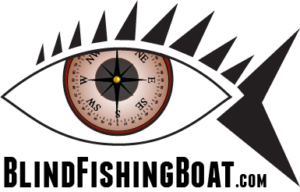Rehabilitation of Blind Vets
Hi,
I work at a Blind Rehabilitation center at a VA hospital. Currently I’m working on putting together a fishing program for the Veterans who come here.
I am enjoying all the tips that have been posted on your web site. I was wondering if I could use some of them in a presentation to the rest of our staff. I would of course give credit where credit is due! I wanted to let you know, and ask for permission.
I appreciate all the time and thoughts you have put into this web site. I would be interested in any other tips you would have for myself.
Thanks for your time
Cori
Hi Cori,
It’s always nice to hear that my fishing tips are benefiting others.
Everything I post on my site is meant to be for others to enjoy and use, free of charge. While there are techniques and gear that I try which doesn’t work out, instead of writing about them, I’ve chosen to focus on all the things that are accessible and usable to people without sight.
The sport of fishing really does offer people with vision loss endless choices and variety, and so little has to be done differently. In fact, it could be argued that sighted fishers have worked hard to pick up the skills people with vision loss often take for granted, like their use of touch as their second most favourite way to take in information, next to listening.
A couple of tips to get you started. Go with weedless lures like spinnerbaits to start with if fishing in and around cover. If you want to get write into the thicker weeds, go with the floating frog as they offer a multi-sensory stimulus to the blind fisher (sound of the bite and feel of the fight), but heavier than average equipment is needed. If you are boat fishing with larger numbers, try drift fishing with bottom-bouncing gear or dragging tubes. Trolling cranks is something that can be done with beginners relatively easily, or if you’re fishing for panfish over weed beds, you could even fish straight below the boat with a hook, sinker and worm. I’ve even used the bobber, but for this to be effective, you need to use the smallest possible bobber, and it needs to be cast out and then reeled back in very slowly by the non-sighted fisher so they can feel the bite as the bobber is pulled under. Slack line fishing with bobbers doesn’t work as it requires a sighted person to watch the bobber, and nothing is more frustrating than having to depend on someone else to tell you when a fish is biting. The whole point of fishing without sight is to experience the success of doing it yourself.
I wish you all the best with your program. Please feel free to write or call if more information is needed – happy to help. Giving these guys and gals the experience of catching fish will, I’m certain, give them the confidence that will assist with their learning to live life again, only this time without looking.
Anchors up,
Lawrence Euteneier
Captain
Blind Fishing Boat
